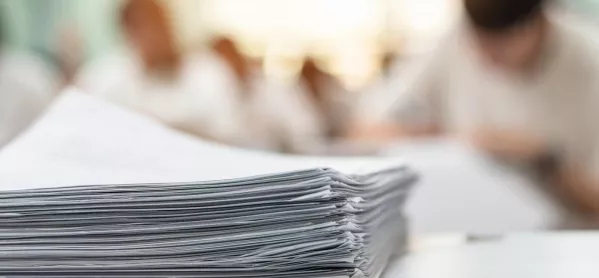Schools minister Nick Gibb says that next year’s GCSE and A-level students have suffered more from the Covid-19 pandemic than this year’s students.
He was speaking to MPs at the House of Commons Education Select Committee today when he said it would be “fair” to keep grade boundaries in 2021 similar to those this year - despite the possible “long-term impacts”.
Committee chair Robert Halfon MP said there had been “pretty huge” rises in grades in certain subjects this year, and suggested to Mr Gibb there was a need to counteract inflated grades by dropping grade boundaries and standardising grades this year.
Read: What are the implications of 2020 grade inflation?
2021 exams: 3 questions that we still need answers to
GCSE results day 2020: U-turn means record top grades
But Mr Gibb said: “The reason why I think it’s important that the grading in 2021 is similar to that in 2020 is about fairness between those two years. This is a cohort - the 2021 cohort - that has suffered from the pandemic in a greater way than the 2020 cohort, who had completed most of their course by the time we had closed schools to most pupils in March.
“This cohort has seen a large proportion of the first year of their course being disrupted - their Year 10 and Year 12 - disrupted by the closure of schools for most pupils, and so we do need to make sure they’re treated fairly.”
Mr Halfon pointed out that the DfE had been against grade inflation following the cancellation of exams this year. He said: “That was the reason for introducing the dreaded algorithm [to moderate centre-assessed grades] in the first place.”
Mr Gibb said: “This is a pandemic. We’re in the middle of the biggest crisis this country has faced since the Second World War and a lot of young people have seen their education disrupted…I think it is important in terms of fairness that, for this year’s cohort, the grading is similar to that of the immediate previous cohort and I think, in all our consultations and discussions, that view has received widespread support.”
He added: “We did bring back Year 12 and Year 10 part-time in June and July but really most of their education has been remote and even now, even from September since schools have gone full time, schools up and down the country have been self-isolating for periods of high infection so there has been quite a bit of disruption for these pupils.
“And I think it would be seen as unfair if we started to return to the grading of 2019 and earlier this particular year. I do accept your point that we will need to return at some point and take a view of what the long-term impact of this would be, and that’s work we’ve already started.”
